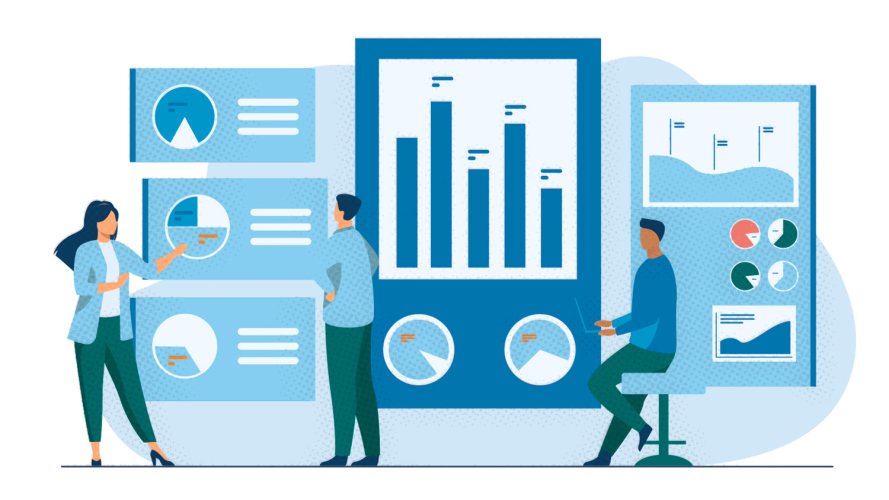Preparing For a Tough Economy? Your Whole Workforce Needs Data Skills



Data literacy is a key driver of employee happiness, productivity, and innovation, but most employees say they lack this key skill. Here's why it's become more important than ever to change that.
Business leaders have been on a wild ride since early 2020, and now economists predict a challenging road ahead. It’s never been more important to empower every worker with the data they need to understand, analyze, and make decisions. Why? Data-literate workforces create data-driven companies with higher revenue, better customer service, best-in-class efficiency, and better profitability.
“Every single function in the organization now regards data skills as an absolute necessity,” said Martha Bennett, vice president and principal analyst at Forrester Consulting, on a recent webinar. “That’s not something we’ve seen consistently before.”
Being data literate means having the ability to analyze data, extrapolate what it means in a business context, and have meaningful conversations with stakeholders about next steps. Someone with data skills does not need to rely on analysts to find data, make a dashboard or automate simple tasks. They can do it themselves. A data-driven organization is one in which all stakeholders, not just analysts or certain departments, have these abilities.
Two examples: Spotify and Wayfair, digital-native companies with data as their foundation, which use machine learning to deliver highly personalized customer experiences, product and content recommendations.
But such companies are outliers. There’s a disconnect at many organizations between what leaders and workers believe about data literacy. Seventy-nine percent of business decision makers say their departments are successfully equipping people with data skills, but only 35% of workers say they have been trained on data visualization tools, and 29% on statistical tools. Twenty-seven percent say they are able to read data outputs relevant to their role, and only 26% say they can make decisions based on data.
That’s according to research by Forrester and Tableau, an analytics platform that helps all teams make better decisions driven by data. In a finding Bennett described as “jaw-dropping,” there’s a strong correlation between satisfaction with data initiatives and satisfaction with the organization. Ninety-seven percent of people happy with their company’s data initiatives say they are happy with the organization, while only 9% of people unhappy with its data initiatives (lack of access, training, etc.) are happy with the organization.
“If you as an employee feel you don’t have data skills to do your day-to-day job, that probably makes you question whether the company is making the right decisions,” said Wendy Turner-Williams, vice president and chief data officer at Tableau.
Analytics for everyone
Elevate people, and your organization, with the power of data. Tableau helps everyone see and understand data so you can make better decisions, faster.



Build a data literate organization
According to MIT Sloan, data literacy is one of five keys to building a future-ready workforce. This requires data democratization, the notion that every employee should have access to data, and the training it takes to use the tools. The benefit: everyday employees don’t have to wait for or rely on other departments to get this information, which means they can move faster.; the whole organization is better informed, which means everyone can make better decisions.
Indeed, leveraging data requires collaboration and an acknowledgement that data is an organizational asset to be shared, not hoarded by the department that created or collected it.
Bennett and Turner-Williams shared tips for organizations trying to increase data literacy and build a data-driven culture:
- Provide the right training for the role, and make the training and data relevant to a person’s daily responsibilities. For example, don’t use examples from sales in training for field service workers.
- Provide business context around the data, and help workers understand what questions they need to ask after they dive in. Otherwise, the data is not actionable. “Machines can’t think,” Bennett said. “Algorithms mine data for patterns and anomalies; you might get an alert that sales are down, but the system can’t explain why.” It’s up to the human, she said, to ask the right question to arrive at the “why.”
- Lead by example. Business decision makers should not present strategic decisions as a fait accompli, but explain specifically how data informed the decision.
Building and maintaining a data culture should be a marriage of technology, tools, training, and business knowledge.
Data literacy for uncertain times
Even if every individual has access to relevant data, they need to know how to use it to make decisions. Bennett said good use of data is an indispensable tool for scenario planning, a structured process of thinking about and anticipating an unknown future where organizations can plan ahead for a wide range of outcomes.
There’s certainly a lot to consider today. Between the pandemic, supply chain issues, labor shortages, war, and inflation, businesses need to leverage (and more importantly, trust) real-time data.
“We’re in an environment where things change rapidly and dramatically,” Bennett said. “Data helps us understand what delivers a better customer experience. If we have confidence we’re making the right decisions, that’s clearly a good thing, as companies with high data maturity have better retention and better revenue.”
Bennett said retailers at the onset of the pandemic, who were early in limiting the number of items customers could buy, had an advantage. Through data analysis, these companies foresaw supply chain issues and predicted difficulty in replenishing its stock. Those companies, she said, performed better than their peers and were better able to cope with uncertainty.
Indeed, any business problem or initiative needs to start with questioning what analysis or data is necessary to solve or achieve it. Startups and newer companies have an advantage here in that they’re able to build data into the framework of their organization. One example is Netflix’s Cinematch software, which crunches a huge amount of customer data to serve up ever-more accurate recommendations.
It’s perhaps never been more important for organizations to unlock the value of their data faster. Everyone needs to be in a position to make decisions based on data. The good news is technology has made it possible to not only connect previously disconnected data sources, but also make it shareable, manageable, and interpretable to a much broader pool of stakeholders.
“It’s not about being a master statistician,” Bennett said. “It’s about being able to apply common sense around numbers. These are life skills.”
Get a 360° view of success
Vantage Point magazine brings together thoughtfully curated voices from the world’s most influential companies. Each issue unpacks intimate insights shaping the workplace.n





















![[Illustration] An AI agent with people in bubbles representing different customer service jobs](https://www.salesforce.com/blog/wp-content/uploads/sites/2/2025/01/jobs-AI-will-create-1500x844_60k-1.jpg?w=128&h=96&crop=1&quality=75)






